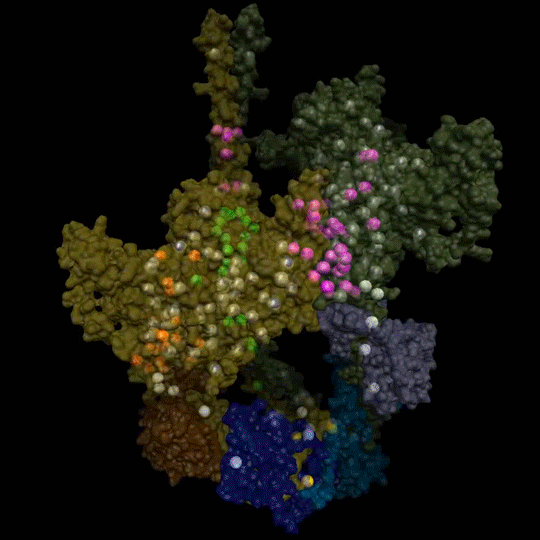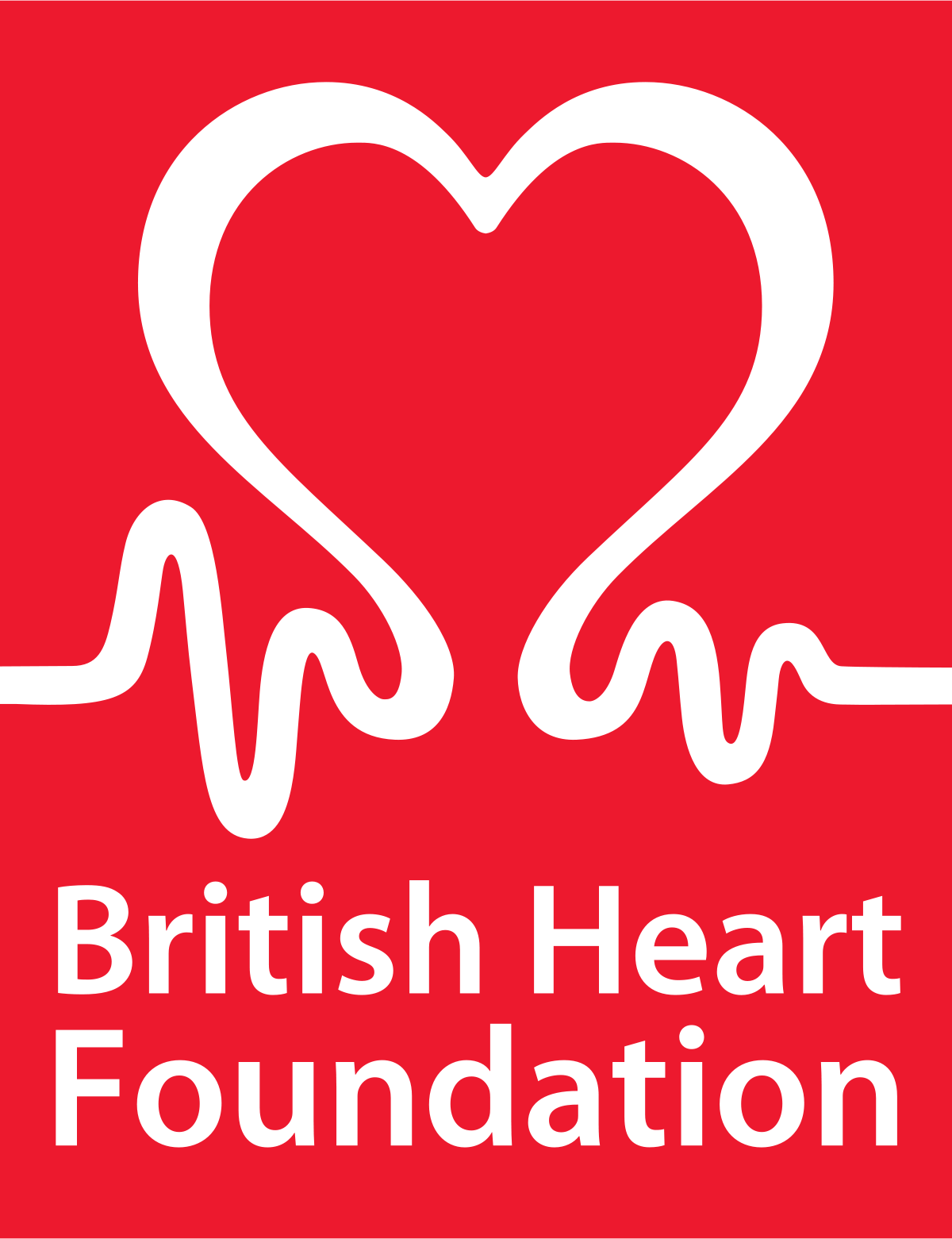“Why do some heart conditions run in families?”
We are working to understand more about the causes of heart conditions that run in families, and particularly cardiomyopathies – a range of conditions that affect the heart muscle, which can become thickened, stiff, scarred, or too thin.
Cardiomyopathy can reduce the ability of the heart to effectively pump blood around the body, and can lead to dangerous heart rhythm changes, with symptoms worsening over time.
Many of the commonest heart problems are caused by problems with the blood supply to the heart – coronary artery disease – or problems with the heart valves which can become damaged over time. Cardiomyopathy refers to an intrinsic problem with the heart muscle itself, when the blood supply is normal. Cardiomyopathy can be environmental, with some caused by viral infections, medications, or lifestyle choices, but often they are genetic, and can be caused by a faulty copy of a gene inherited from parents.
We have been very interested in the Titin gene, which encodes the largest human protein and a key component of human muscle. It has been identified as the most important cause of dilated cardiomyopathy, but many people in the wider population also carry faulty copies of the Titin gene. We are working to understand why some people develop serious cardiomyopathy, while others do not. We believe that that are additional factors that either trigger heart disease, or protect against heart disease, in people with a genetic predisposition.
Through our work, we aim to uncover new mechanisms, diagnostics and therapeutic targets for cardiomyopathy.
We analyse and combine large data sets from patients, trials, and wider research programmes to help identify new patterns.
We employ a range of approaches combining analyses of genomic data, medical imaging, and evaluating electronic health records to make new insights into human cardiovascular disease.
Cardiomyopathy can vary in severity. It can lead to heart failure and result in death, regardless of age or health. Our research findings are providing diagnostic answers to affected families and helping to identify new therapeutic targets.
“We aim to understand the genetic basis of cardiovascular disease in order to both reveal disease mechanisms, thereby identifying new therapeutic targets, and to interpret genomic information for application in patient care.”
We are using genetic and genomic approaches to understand the genetic underpinnings of heritable heart muscle diseases in humans. We are using exome and genome sequencing approaches to find genes that cause Mendelian (single-gene) forms of these diseases and are also exploring the role of more common genetic and environmental factors that modulate disease risk and severity. These studies both provide diagnostic answers to affected families, and also identify potential new therapeutic targets.
All of us carry rare variants that alter important genes. Distinguishing between those that cause disease and those that are innocent bystanders is a key challenge in contemporary clinical genetics. We are developing and applying new methods to address this challenge and collaborating globally to refine our understanding of variation in genes associated with heart disease.
Central to our work is the integration of genome data with cutting-edge phenotypic characterisation. We leverage cardiac magnetic resonance (CMR) imaging, machine-based image processing and quantitative multi-dimensional feature extraction techniques, transciptomics and translatomics, and other large data sets including electronic health records, to make new insights into human cardiovascular disease.
We are evaluating the use of genetic and other biomarkers to stratify patients and predict their response to therapy and long-term outcomes. Ultimately, we are working to interpret genome information so that it can be used to optimise treatment choice for our patients.
Web resources, software, and other tools developed by the group are available at cvgenetics.org/resources.








Zheng SL, […], Ware JS. Evaluation of polygenic score for hypertrophic cardiomyopathy in the general population and across clinical settings. In press at Nat. Genet. (medRxiv 10.1101/2023.03.14.23286621)
Zheng SL, Henry A, […], Ware JS* (joint senior). Lumbers RT*. Genome-wide association analysis reveals insights into the molecular etiology underlying dilated cardiomyopathy. Nat. Genet. (2024). https://doi.org/10.1038/s41588-024-01952-y
Tadros, […], Ware JS* (joint senior), Bezzina CR, Watkins H. Large scale genome-wide association analyses identify novel genetic loci and mechanisms in hypertrophic cardiomyopathy .In press at Nat. Genet. medRxiv 10.1101/2023.01.28.23285147
Curran L, […], Ware JS, O’Regan DP. Genotype-phenotype taxonomy of hypertrophic cardiomyopathy. Circ Genom Precis Med. 2023;16:e004200.
McGurk K, […], Ware JS. The penetrance of rare variants in cardiomyopathy-associated genes: a cross-sectional approach to estimate penetrance for secondary findings. Am. J. Hum. Genet. 2023;110:1482.
Arbelo E, […], Ware JS, Kaski JP. 2023 ESC Guidelines for the management of cardiomyopathies. Eur Heart J. 2023:44;3503.
Wilde AAM, […], Ware JS, Winlaw DS, Kaufman ES; ESC Scientific Document Group. European Heart Rhythm Association (EHRA)/Heart Rhythm Society (HRS)/Asia Pacific Heart Rhythm Society (APHRS)/Latin American Heart Rhythm Society (LAHRS) Expert Consensus Statement on the state of genetic testing for cardiac diseases. Europace. 2022;24:1307.
Whiffin N, […], MacArthur DG, Ware JS. (2020). Characterising the loss-of-function impact of 5′ untranslated region variants in 15,708 individuals. Nature Communications, 11, 2523.
Mazzarotto F, […], Ware JS* (joint senior), Walsh R. (2020). Reevaluating the Genetic Contribution of Monogenic Dilated Cardiomyopathy. Circulation, 141:387–398
Meyer HV, […], O’Regan DP. (2020). Genetic and functional insights into the fractal structure of the heart. Nature, 584; 589–594.
Karczewski KJ, Franciolo LC, Tiao G, […], Daly MJ, MacArthur DG. (2020). The mutational constraint spectrum quantified from variation in 141,456 humans. Nature, 581, 434–443.
Garcia-Pavia P, Kim Y, Restrepo-Cordoba MA, […], Ware JS* (joint senior), Seidman CE. (2019). Genetic Variants Associated With Cancer Therapy–Induced Cardiomyopathy. Circulation, 140:31–41.
Ware JS, Amor-Salamanca A, […], Barton PJ, Garcia-Pavia P. (2018). Genetic Etiology for Alcohol-Induced Cardiac Toxicity, Journal of the American College of Cardiology, 71 (20), 2293-2302.
Ware JS, Cook SA. (2018). Titin cardiomyopathy: from DNA variant to patient stratification, Nature Review Cardiology (invited review) 15(4), 241. 10.1038/nrcardio.2017.190.
Whiffin N, Minikel E, […], MacArthur DG, Ware JS. (2017). Defining the genetic architecture of hypertrophic cardiomyopathy: re-evaluating the role of non-sarcometric genes, European Heart Journal, 38(42) 3119-3121.
Schafer S, de Marvao A, […], Ware JS* (joint senior), Hubner N, Cook SA. (2017). Using high-resolution variant frequencies to empower clinical genome interpretation. Genet Med 19, 1151.
Schafer S, de Marvao A, [32 authors], Ware JS (joint senior), Hubner N, Cook SA. (2017). Titin truncating variants affect heart function in disease cohorts and the general population. Nature Genetics 49, 46.
Lek M, […], Daly MJ, MacArthur DG, Exome Aggregation Consortium. (2016). Analysis of protein-coding genetic variation in 60,706 humans. Nature 536, 285.
Ware JS, Li J, Mazaika E, […], Seidman CS, Seidman JG, Arany Z. (2016). Shared genetic predisposition in peripartum and dilated cardiomyopathies. New England Journal of Medicine 374, 233.
Homsy J, Zaidi S, Shen Y, Ware JS* (joint first author), […], Seidman C, Chung W. (2015). Genetic Causes for Congenital Heart Disease with Neurodevelopmental and other Deficits. Science 350, 1262.